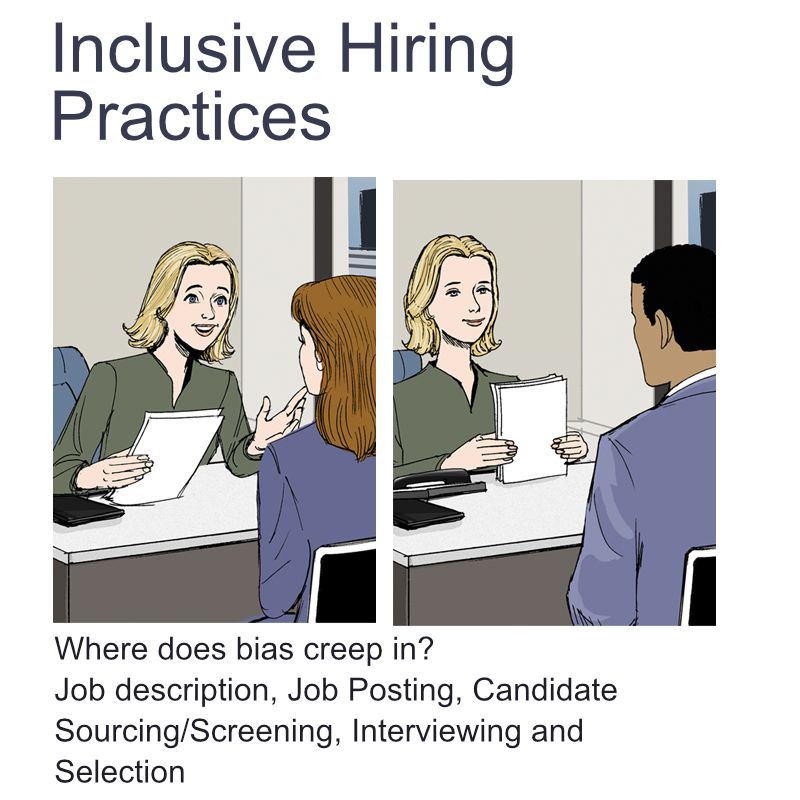Inclusive Hiring Practices

These days, organizations are
finding it increasingly difficult to recruit, hire and retain employees.
The pandemic has shifted the goalposts for millions of people, if not
relocated them to entirely new playing fields (sorry to stretch the
metaphors).
That’s why we’re getting a lot of calls from companies looking for
help. In response, we’ve launched a new Workshop via Zoom. In Inclusive
Hiring Practices, we look at how bias creeps into various aspects of the
recruiting, screening, interviewing and selection processes.
We use examples and activities to explore the role that unconscious
bias plays in the hiring process and then we offer strategies for how to
disrupt it. Why focus on unconscious bias? Because it is the
unintentional expression of bias, both verbal and non-verbal, at any
stage of your hiring process that can cause you to overlook or discount a
candidate who might be your next rockstar.
Inclusion is the key. Research has shown that companies that have
more diversity are more successful. When you measure inclusivity, the
productivity is even higher. Employees are looking to be part of an
organization in which they feel like they belong. This is why it’s
critical now to take a long hard look at your hiring process.
Inclusivity supports your brand. Building a base for hiring diverse
candidates is the first step towards building an inclusive work
environment, one where employees feel they belong and are thus inspired
to bring discretionary effort and innovative ideas to the table.
In each Inclusive Hiring Practices Workshop, we identity the stages
of the hiring process as: Job description, Job Posting, Candidate
Sourcing/Screening, Interviewing and Selection. Bias can creep into all
of these components of the applicant screening process. We use
illustrations, videos and other activities to help people consider where
they may be acting based on a bias and if so, how to interrupt and
disrupt the bias so that they can source and advance the best
candidates.
A recent article from the Harvard Business School echoes our interest in inclusive practices. “6 BEST PRACTICES TO CREATING INCLUSIVE AND EQUITABLE INTERVIEW PROCESSES” lists these important topics: Start with Job Descriptions, Counter the “Just Like Me” Bias, Create Inclusive Video Interviews, Standardize the Interview, Select Your Questions Purposefully, and Utilize Work Samples.
“Adjusting your interview process to ensure equity and inclusion
makes hiring, and your organization as a whole, more effective. Take the
time upfront to utilize these best practices and they will soon become
the new normal and serve as an important signal to future employees
about what they can expect from a career with your organization.
- Craft inclusive job descriptions that welcome in candidates
- Educate interviewers on the benefits of diverse teams to counter “just like me” bias
- Level the playing field during video interviews
- Use the same set of questions for all candidates
- Select questions that focus on capabilities
- Use work samples to assess skills equitably”
I suggest you read the entire article here.
The good news is that there are tactics you and your hiring managers can adopt to improve your hiring process. Book a Discovery Meeting to learn how our Inclusive Hiring Practices Workshop via Zoom can help you and your hiring managers get on board to counter and disrupt any biases that may be influencing their judgment, your organization’s strategies for hiring, and your ability to recruit, hire and retain the best talent.

